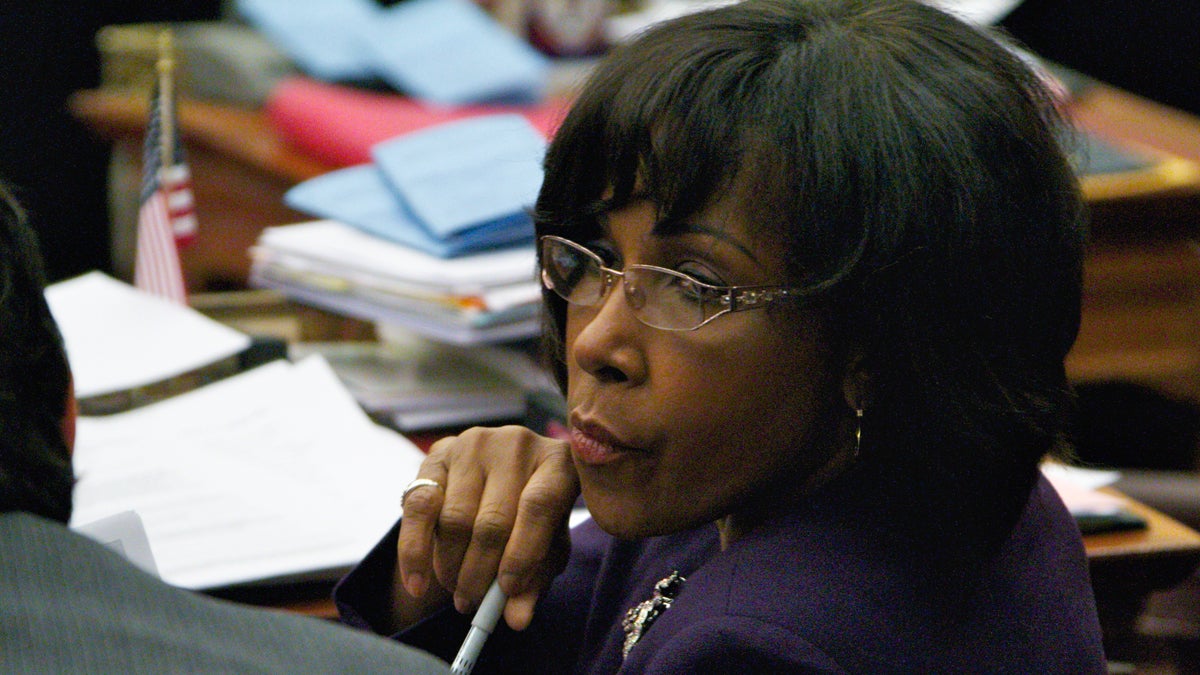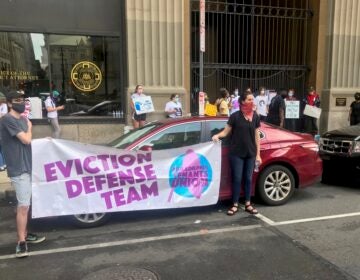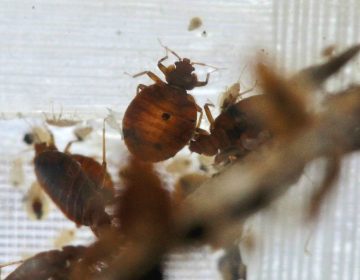Final vote on bill to mandate all Philly rental units be lead-free pushed until fall
A bill requiring all Philly rental units built before 1978 to be free of lead was up for a final vote — until it’s sponsor suddenly pulled it from the agenda.

Councilwoman Blondell Reynolds Brown is shown in City Council chambers. (Nathaniel Hamilton for WHYY, file)
A bill that would require all rental units built before 1978 to be free of lead hazards is still stuck in Philadelphia’s City Council after it’s sponsor suddenly decided to pull it off the agenda Thursday and push the final vote for the fall session.
Councilwoman Blondell Reynolds Brown said she found an issue that has not been fully explored and wants to discuss with all the stakeholders before moving forward.
“I learned of a new wrinkle yesterday and I did not get the chance to share that new wrinkle with my colleagues,” Reynolds Brown said. “The way I operate is it’s important to be thorough, even if it means making people unhappy.”
In a memo sent to all council members on Thursday, Reynolds Brown said she wanted to “turn over every stone” to ensure everyone is on board with the bill. For that, she wrote, a final conversation was needed to discuss the best possible system to enforce the bill. She scheduled that meeting for July, but said it could happen as early as next week.
Advocates for children and public health with the Lead Free Philly Coalition, who gave public comment in support of the bill on Thursday, were disappointed and surprised.
“We’ve been discussing this bill for 18 months,” said George Gould, a senior attorney at Community Legal Services.
Gould accused Reynolds Brown’s of being preoccupied with finding a middle ground with landlords.
“There is no middle ground to lead poisoning,” Gould said. “The law we have now is not effective. Over 2,000 kids are being lead poisoned in this city every year and something needs to be done very quickly to deal with that.”
A law enacted in 2012 to stop babies from being poisoned has proven not to be effective. Ten percent of children living in 16 zip codes in Philadelphia have elevated blood lead levels, according to 2014-2017 data from the Philadelphia Department of Public Health. Sixty percent of the kids with high lead levels in the city live in rental units.
The current law only requires landlords renting properties before 1978 to families with children 6 years old or younger to certify that a unit is free of lead. The city says that makes it unenforceable because there’s no way of knowing where kids under 7 years old live. According to city data, out of an estimated 22,000 rental units housing children of those ages, only 5,776 have complied with the regulation.
Affordable housing advocates say it also creates unintended discrimination because landlords prefer not to rent to families with children to skip the financial burden.
Expanding the law to all rental units built before 1978 would solve these issues, advocates of the bill say.
But industry lobbyists, such as the Homeowners Association of Philadelphia (HAPCO) are putting up significant resistance to the bill. They argue the extra cost of remediating rental units would put low-income landlords out of business. And that the new law won’t be enforceable or effective either, because the city lacks the inspectors needed and because lead is everywhere, including schools.
Donna Cooper, executive director of Public Citizens for Children and Youth, argued the bill has been sufficiently discussed and that landlords have gotten many of their requirements worked out already.
Originally, rental units were required to get a lead certification each year, but that was changed to every three years. The law won’t be implemented immediately, but after 1.5 years and progressively — starting with the zip codes with more lead hazards — to give landlords time to comply. And on Thursday, City Council approved a budget package including a $1 million loan fund for landlords who can’t afford to remediate lead.
HAPCO President Harvey Spear said lead certification should only be required when a landlord renews a rental lease and children move in.
“Why would you have to do it every time when you release a lease if there’s no children? It only affects children under 6,” Spear said.
Cooper said if the bill is based on renewal of the lease, the Lead Free Philly Coalition would be against it.
“We do not have any information from the councilwoman as to why she didn’t move the bill today,” said Cooper. “We know that there are enough votes on City Council behind the current bill that is in front of them. So if there’s a reason that the bill is being held, it is a mystery to us and it puts children at risk.”
Members of the coalition said every day the law is delayed, an average of six children get lead poisoning in Philadelphia.
Reynolds Brown said the bill was not going to be effective until July 1, 2020, so pushing the vote won’t necessarily affect children. If the vote moves to the fall, she said, the implementation date “may” remain the same.
No amount of lead is safe according to the Centers for Disease Control and Prevention. Lead can cause brain damage, learning, and behavior problems, such as reduced IQ and juvenile delinquency, hearing, and speech problems, and delays in growth and development.
WHYY is your source for fact-based, in-depth journalism and information. As a nonprofit organization, we rely on financial support from readers like you. Please give today.





